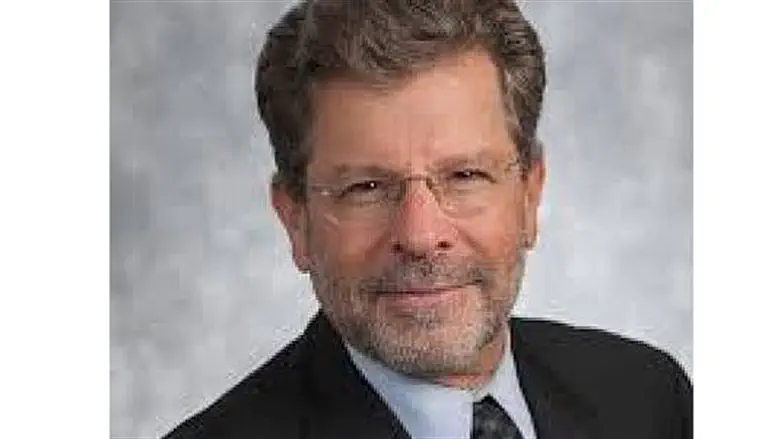
On December 25,1991, the Soviet Union ceased to exist and the Cold War ended. Or did it?
The answer depends on whether the Cold War was a conflict between two powerful nation-states or a struggle between two ideologies.
If it was the latter, the Cold War didn’t end with the collapse of the Union of Soviet Socialist Republics. Rather, following a hiatus, Communist cold warriors in Moscow were superseded by Communist cold warriors in Beijing. And leaders of the Chinese Communist Party take Marxism/Leninism at least as seriously as did the last Soviet rulers.
Why did we not see this transition? Largely because the conventional—and bipartisan—wisdom held that the People’s Republic of China was slip-sliding away from communism, embracing freer markets and freer trade in pursuit of prosperity. Other freedoms would surely follow. We Americans could facilitate these historical changes.
Notably, in 2001, President Clinton successfully pushed to give the PRC permanent normal trade relations with the United States and membership in the World Trade Organization, a foundational institution in the rules-based international order established by Americans following World War II.
“Everything I have learned about China as president and before and everything I have learned about human nature in over a half-century of living now,” Clinton said at the time, “convinces me that we have a far greater chance of having a positive influence on China’s actions if we welcome China into the world community instead of shutting it out.” Few Republicans disagreed.
Joe Biden, as a senator and vice president, was a strong advocate of closer relations with the PRC. “As a young member of a Foreign Relations Committee, I wrote and I said and I believed then what I believe now,” he told Chinese visitors in 2011, “that a rising China is a positive, positive development, not only for China but for America and the world writ large.”
Running for president almost a decade later, he told voters that China’s rulers are “not bad folks, folks. But guess what? They’re not competition for us.”
His National Security Strategy, published last October, asserts that the Cold War is over and “We do not seek conflict or a new Cold War.”
However, the NSS does allow that “a competition is underway between the major powers to shape what comes next. … Democracies and autocracies are engaged in a contest to show which system of governance can best deliver for their people and the world.”
A competition, a contest—and may the best system of governance win! Sounds like we’re discussing an Olympic sport rather than determining whether the future belongs to free nations or totalitarian dictatorships.
“It does us little good to repeat again and again that we aren’t seeking a new Cold War when the CCP has been stealthily waging one against us for years,” Matt Pottinger told the House select committee on the CCP a couple of months ago. A Mandarin-speaking former White House deputy national security advisor, Pottinger now serves as chairman of FDD’s China program.
Recognizing that a Cold War is underway is more than a semantic matter. It provides a framework for formulating policies based on lessons learned.
During a cold war, the United States should have two primary objectives. The first was articulated most succinctly by Ronald Reagan four years before he became president: “We win and they lose.”
That doesn’t necessarily imply the termination of CCP rule in China. It doesn’t even mean “containment”—the core of U.S. policy toward the Soviet Union.
It does suggest, as Pottinger has proposed, “a close cousin. Call it ‘constrainment’”—preventing the PRC from becoming the global hegemon, enforcing its rules internationally while the United States resigns itself to becoming a has-been power in a world where liberty dies.
If you think I exaggerate, you’re not listening to Chinese President Xi Jinping, who has declared that it is his “historical mission” to utilize “the tools of dictatorship” to realize a future in which “capitalism will inevitably perish and socialism will inevitably triumph.”
Marxism, he has said, “was created in order to change the destiny of human history. … a collectivized world is just there, over [the horizon]. Whoever rejects that world will be rejected by the world.”
The second vital objective in a cold war is to prevent it from becoming hot. That can most effectively be achieved through deterrence—convincing adversaries that it would be disastrous for them to challenge us militarily, or even to cross our “red lines.” If they believe they stand an even chance of defeating us, they are more likely to take their best shot.
We can debate strategies and tactics. But the first order of business is to come to terms with the ambitions and machinations of Xi, the CCP and the PRC, keeping in mind that Vladimir Putin, Ali Khamenei, and Kim Jong-un are what communists would call “fellow travelers.”
Michael Pillsbury, author of “The Hundred Year Marathon: China’s Secret Strategy to Replace America as the Global Superpower,” and currently senior fellow for China strategy at the Heritage Foundation, recently co-authored a report titled, “Winning the New Cold War.” It argues that “protecting the U.S. homeland and prosperity and diminishing China’s ability to harm the U.S. will require a whole-of-government and whole-of-society approach.”
That’s a heavy lift, but the alternative could be to lose this “New Cold War,” or, if my conceptualization is preferred, for historians of the future to write that the collapse of the Soviet Union was a battle won in a war lost because Americans wrongly believed the war had ended.
Clifford D. May is founder and president of the Foundation for Defense of Democracies, and a columnist for “The Washington Times.”